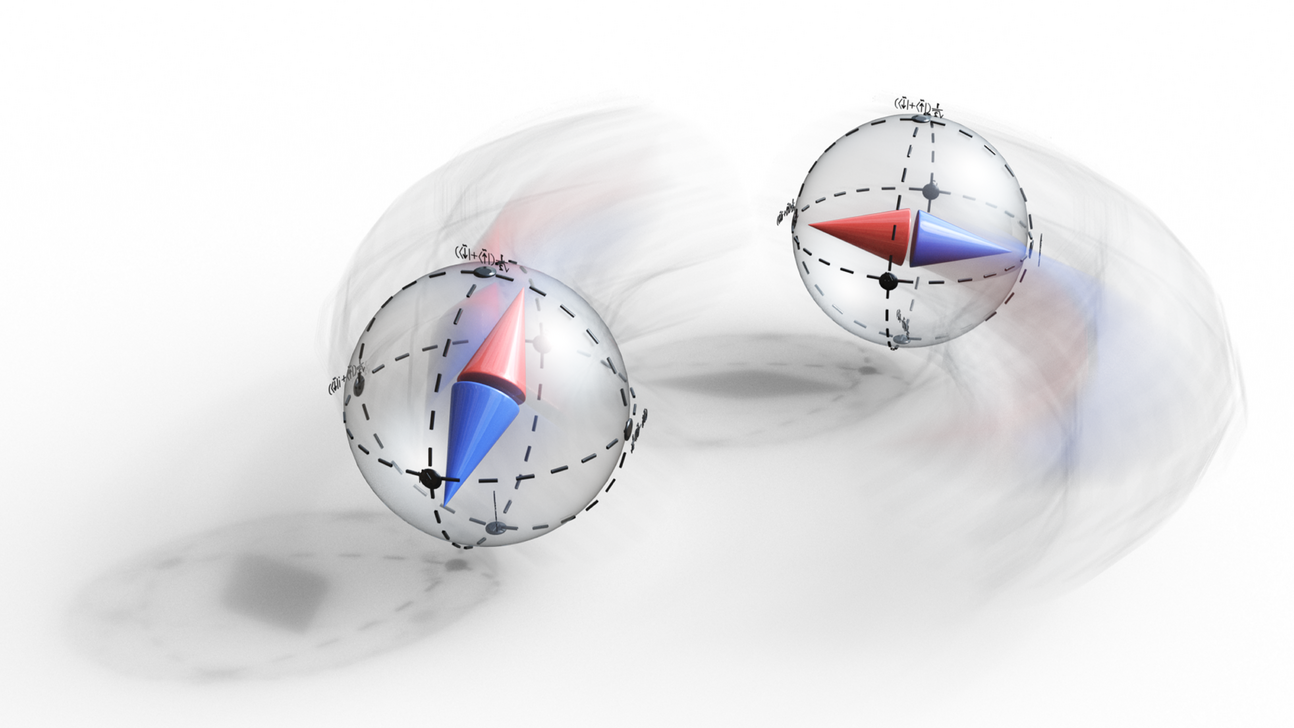The "Pseudospin-based Antiferromagnetic Magnonics (POSA)" project aims to establish antiferromagnetic magnonics as a platform for energy-efficient information processing. Matthias Althammer and his research group will realize new concepts for faster and more powerful information processing systems. The ultimate goal of the project is to create a new type of artificial neural network with low power consumption and high operating speed.
Today, information technology is dominated by electronics, where information is encoded and transported by electrons as carriers. In addition to a charge, electrons also have a spin as an intrinsic property with two different spin states along a quantization axis. This enables binary information encoding, which is already routinely exploited in the research field of spintronics, for example in magnetic storage systems. A key question is how the information encoded in the spin degree of freedom can be transported efficiently. A promising approach here is to use the quantized excitations of the magnetic lattice in electrically insulating ferromagnets or antiferromagnets, the so-called magnons. The realization of this approach is the focus of the POSA project.
You can read the entire press release on the BAdW website.
You can find out more about the behavior of magnons in ferromagnets in this article.
